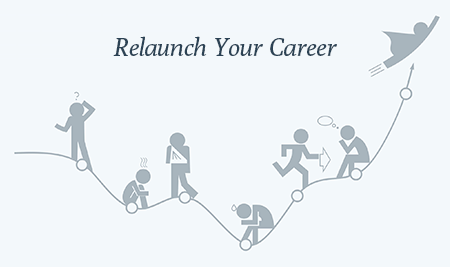A follow-up note to my “Developing Your Personal Brand” workshop I delivered at the Cambridge Judge Business School.
This past Friday, I hosted a series of Personal Branding workshops for the Cambridge Business School focused on defining what you stand for in your career & life. We covered 3 topics: the characteristics of strong consumer brands, how to establish your personal brand, and how to reinforce your personal brand. During the multiple session I held throughout the day, I noticed similar questions came up, mostly around the idea of how MUCH you should promote your personal brand.
For example, a student from Japan came up to me after one of the sessions and pointed out that in Japan, self-promotion could have a negative impact on your career, that employers may actually frown upon it. Additionally, although hiring via social media is becoming increasingly more common in places like the US & UK, he said hiring employers in Japan don’t necessarily refer to candidate’s social media profiles, and if they did, seeing someone pushing their “personal brand” could been frowned upon. He made a very good point that in the Western world, this idea of personal branding may be a way of standing out more effectively, but in a place like Japan, standing out is not necessarily seen as positive.
A British student pointed out, very fairly, that even in the Western world, there’s a spectrum of what’s acceptable in terms of self-promotion. For example, even between Brits and Americans, Americans in general seem to more readily embrace and appreciate those who stand out and speak up, whereas Brits may appreciate those who are a bit more humble & soft spoken.
At its core, this comes down to the tension between the more Western concept in the workplace where “The squeaky wheel gets the grease,” and the more Eastern concept of “The stake that sticks up gets hammered down” (出る杭は打たれる). The former values & rewards those who stand out, who speak up whereas the latter encourages and respects blending in and falling in line.
I really appreciated getting these questions and hearing this feedback. It shed light on the fact that my presentation was indeed quite tilted toward the Western & even American way of working and personal branding, informed by years of observing those who stand out being rewarded along with countless articles written about the importance of speaking up. With over 40 nationalities represented in their class of 145 students, the Cambridge MBA student body is incredibly diverse, and whenever I have the privilege of presenting to such a wide spectrum of individuals, I find myself learning a lot from the interactions, the questions, the discussion.
Anyway, this opportunity to hear feedback from this diverse group of students reminded me of how important it is to qualify any point of view or set of recommendations as being context specific. On my train ride home yesterday, I actually reflected quite a bit on some of the different points of view I heard throughout the day, and it reminded me how this idea of personal branding is so dependent on your own culture, personality, and environment.
As an American myself who’s worked for several years in the UK, I’ve taken note of this American bias, especially when working on teams composed of both Americans and Brits. I recall the first job I had in the UK, most of the people in the small company where I worked were British with the exception of me and one other American, and I recall noticing how “loud” she came across, both figuratively and literally. While this would have been fine in the US, I remember making a conscious effort to be a bit more restrained because I felt this approach was a bit jarring here in the UK.
Also, as an Asian-American, I’ve spent my entire living at the intersection of two very different cultures, where my behaviours and tendencies are informed by both, probably a bit more American than Taiwanese simply because I spent most of my life in the US, but still balancing the two. Broadly speaking, the Taiwanese side of me errs on the side of introversion, humility, and not drawing too much attention to myself. The American side of me insists on aiming for extroversion, especially in business contexts, stepping up, and taking a more proactive role in managing my image, career, and “personal brand.” The intersection of the two aspects of my culture can on the one hand be very informative because I can appreciate and respect both approaches, but on the other hand, can be very confusing, as I do find myself flipping back and forth between the two quite often.
The whole idea behind this Personal Branding presentation is to help professionals differentiate themselves, market themselves, and promote what unique value they can bring to their target employer post-MBA, very much tilted toward a more proactive strategy. However, the interactions with the students reminded me that whole idea of personal branding and self-promotion might be representative of a rather extreme view of how you market yourself, one that’s heavily influenced by my own experiences having spent my entire life in the Western world, with my entire professional life in the US & UK, and my own American upbringing, where extroversion and “internal-PR” within large organisations is not only encouraged, but at times, necessary to succeed.
With this in mind, because I had limited time with each set of students yesterday, I feel compelled to more fully address 3 questions that jumped out to me as being especially important.
1) What if I’m not someone who’s naturally comfortable “promoting” who I am?
This is an especially important question because there’s a difference between self-promotion and personal branding. Excessive self-promotion in its most extreme form can mean pushing forward your own agenda, promoting your own self-interests, even bordering on bragging about your accomplishment, hogging the spotlight, or grabbing attention at the expense of others. However, I see personal branding as something very different. It doesn’t mean talking about yourself all the time. It also doesn’t mean necessarily “promoting” yourself. It does mean having a clear sense of who you are and what you stand for, ensuring your behaviours and actions are in line with that identity. It means putting a stake in ground about how you do want to describe yourself if the opportunity arises.
Most importantly, having a clear personal brand allows you to be intentional, consistent, and focused in your approach to your career & life, when describing yourself to others or interacting in situations when being clear on your unique value does matter. So part of it is about being clear about who you are, and when you do have the option of communicating this to others, you can do this explicitly, as we discussed in the seminar (social media, attire, job search materials), or more implicity— where you choose to focus your energies, what activities you prioritise, how you interact with others, and the groups or skills you choose to align yourself with to support that personal identity.
2) What’s the right amount of personal branding? How can I tell if I’m overdoing it?
Again, it’s important to draw a distinction between being clear on your personal brand and promoting that brand to others. The former involves establishing and reinforcing your personal brand in everything you do. The latter is more about marketing yourself and communicating who you are others, both verbally and non-verbally. I actually think it never hurts to reflect on who you are and who you want to be in your career and life. Given the finite amount of time you have in each day and the overwhelming number of career options, projects, activities, and skills that will inevitably come your way, being selective and focused allows you to be more centred and intentional throughout your career. I’m a big believer that excellence arises from focusing on your strengths, so being clear on what you want to focus on can be hugely beneficial.
At the same time, I’m not saying you should always cut out all activities that don’t fit your personal brand or never speak about your other interests or strengths that fall outside the core parts of your “brand.” Standing for something is beneficial because it provides you with intention & focus, but I also think you should remain open to evolving who you are and engaging in activities that fall outside the boundaries of who you are. If you’re ever feeling like your stagnating or becoming too one-dimensional in your approach, it may be time to expand or evolve your “personal brand.”
3) What if I’m in a situation where self-promotion isn’t encouraged or valued?
I suppose if you find yourself in an environment or workplace where self-promotion or differentiation isn’t as highly valued, you may indeed want to pull back on explicitly expressing your personal brand. Being clear on who you are and what your key values are can still serve as a strong internal compass for your life. However, I’ll concede that the idea of communicating your personal brand more explicitly is probably most appropriate in the job search context, especially in more “Western” or “American” cultures where individuality tends to be highly valued. Ultimately, you’ll need to make a judgement about how important it is for you to be “differentiated,” and if so, how much you want to broadcast that to others.
There’s certainly a spectrum, from more subtly expressing your personal brand in your non-verbal actions & interactions with others to more explicitly communicating your brand out loud or via social media. Where you land on the personal branding, explicit self promotion continuum needs to feel right for you. Wherever you choose to exist along this spectrum needs to feel authentic to you who are and appropriate given your cultural or work norms.
In conclusion . . .
I hope this can help shed light on the nuances of personal branding, especially in the context of different cultures, personality types, or work contexts. I look forward to reconnecting with the Cambridge MBA Class of 2015 again in a few days to talk about how to express your personal brand, keeping in mind that you always have a choice about how much of this you want to do or feel is appropriate to do. In the meantime, if you have anything to add or want to feedback on anything you heard last Friday, feel free to add your comments below. I’ve really appreciated all the feedback you’ve already shared with me and look forward to continuing the discussion soon.
Learn how to build a strong personal brand
To learn more about how to build a strong personal brand using social media platforms like Twitter, LinkedIn, or Medium, join my course on “Building a Strong Personal Brand to Land Your Next Dream Role.” In the course, you’ll learn:
- Powerful principles of branding
- A simple branding framework to build your own unique personal brand
- How to create a focused summary of your professional strengths
- Ways to reinforce your personal brand in your social media profiles and job hunting.
I offer this course at a special price to my website visitors, giving you lifetime access to the course for $149 (25% off regular $200). Preview the course and join today if you want to learn how to build your professional reputation and stand out to land your next dream role.
Did you enjoy this article?
Get my future articles on career change and personal branding sent straight to your inbox. You’ll also receive access to my Career & Personal Branding Resource Hub after you register. Also, to hear directly from people who have successfully reinvented their careers, tune into my Career Relaunch podcast for even more inspiration.





Thanks for sharing, but I have a question concerning the topic! What is the difference between Personal Marketing and personal branding please, or there is no difference?
Nessah, on first glance, I’d say there’s not a major difference, but perhaps just a difference in semantics. However, for what it’s worth, I see a subtle difference here where branding is slightly more passive while marketing is a bit more active. For example, personal branding could be just being clear about your own identity, like being an expert on a particular skills–say, financial management. Whereas marketing would involve actively promoting that with others, talking about it, sharing that skill, writing about that skill. But at the end of the day, the concepts are VERY closely related.